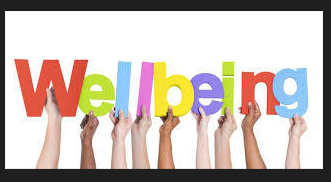- Home
- Wellbeing
Wellbeing

Welcome to the Wellbeing section of our school website which is dedicated to all things related to the mental health and wellbeing of our school community; parents, staff and pupils.
Here at Widnes Academy we are developing a positive ethos and culture towards a whole school approach to being a mentally healthy school. A mentally healthy school is one that adopts a whole-school approach to mental health and wellbeing.
A whole-school approach also involves all parts of the school working together and being committed. It needs partnership working between senior leaders, teachers and all school staff, as well as parents, carers and the wider community, not forgetting our school council who are trained in peer support.
We work with families to ensure the whole school community is welcoming, inclusive and respectful. It means maximizing children’s learning through promoting good mental health and wellbeing across the school – through the curriculum, early support for pupils, staff-pupil relationships, leadership and a commitment from everybody.
Please use this Wellbeing page and resources to help find out about how our school supports your child’s mental health and to access resources and support for any concerns you may have about your child’s mental health. .
Wellbeing Team
Mrs Laura Kirchin - Principal
Mrs Jessica Williams – PSHE/RSE Lead and Class Teacher
We also have the support of the Mental Health Support Team and have a mental health practitioner attached to our school. If you feel your child or family would benefit from their support please contact the school office or speak to your child's class teacher and we can refer you into the service.
Introduction to the Wellbeing Award

We are delighted to have recently been awarded the Wellbeing Award. Developed in partnership with the National Children’s Bureau (NCB), the Wellbeing Award for Schools is intended to help schools prepare and equip themselves to promote emotional wellbeing and positive mental health across the whole-school community.
The vision is to create an education system where good emotional wellbeing and mental health are at the heart of the culture and ethos of our school, so that our pupils, with the support of their teachers, can build confidence and flourish.
Evidence shows us that wellbeing is of central importance to learning and attainment, with high levels of wellbeing associated with improved academic outcomes.
Principles behind the award:
There are four key principles driving the ideas and recommendations behind the award:
- Emotional wellbeing and mental health are a continuum. Related issues can range from positive attitudes and behaviour, through to experiences of emotional distress and mental disorder.
- Schools already experience and manage emotional issues on a daily basis; the objective is to minimise the impact of such issues and maximise the effectiveness of any responses.
- Emotional wellbeing covers a range of dimensions, such as resilience, character building, relationships and self-esteem, etc. Understanding both developmental and mental health awareness is critical.
- Creating a positive school culture requires a whole-school approach that is led from the top while involving all in the school community.
Recognising the signs that a child may be struggling with their mental health can be really hard. A round up of help and tips to help you support children who may be experiencing depression, anxiety, suicidal feelings or self-harm from the NSPCC
https://www.nspcc.org.uk/keeping-children-safe/childrens-mental-health/
Heads Together work to ensure that people feel comfortable with their own and their friends and family everyday mental health and wellbeing.
https://www.headstogether.org.uk/
NSPCC
Place2Be – Has lots of great videos/ articles that parents can read to help them at home.
Place2Be: Parenting Smart: Articles:
How to help if your child is experiencing low self-esteem
What is self-esteem?
Self-esteem is how someone thinks about themselves. Being confident means being comfortable with how they look and how they feel; it means feeling good about themselves, their abilities, and their thoughts. Low self-esteem is when someone is lacking in confidence and doubts their own decisions and abilities.
Signs you might see in your child
Your child may have poor eye contact, defensive body-posture, be withdrawn and have poor levels of participation in class activities.
Your child may engage in negative self talk, such as, “I'm not good enough” or, “I can't do this” or frequently show signs of absorbing negative comments such as, “My mum/dad says I'm not....”.
How you can support your child
- Focus on positives and find something to praise your child about, such as being kind or being good at sport, etc.
- Encourage your child to do more enjoyable activities - things you know your child previously enjoyed.
- Focus on 'small wins', don't chase big achievements. Do the little things and use them as a springboard. Your child should be encouraged to feel proud of even small achievements.
- Use the Five Ways to Wellbeing as a tool to support your child, maybe use it to make some goals together
- Explore positive role models and discuss what makes your child feel good about unique differences.
- Discuss and practise positive body language, encouraging good posture and eye-contact.
If your child is still giving you cause for concern,
you may wish to discuss with your school or your GP
Mindfulness Exercises:
5,4,3,2,1, Grounding Technique
Using our senses we can learn some calming technique’s that enable us to manage feelings during stressful times. Below is a countdown activity.
Think of 5 things you can see, 4 things you can feel, 3 things you can hear, 2 things you can smell and 1 thing you can taste.
To begin, close your mouth and take in a deep breath through your nose then slowly breathe out through your mouth.
5—LOOK: Look around for 5 things that you can see, and say them quietly to yourself. For example, you could say, I see the computer, I see the cup, I see the picture frame.
4—FEEL: Pay attention to your body and think of 4 things that you can feel, and say them quietly to yourself. For example, you could say, I feel my feet warm in my socks, I feel the hair on the back of my neck, or I feel the chair I am sitting on.
3– LISTEN: Listen for 3 seconds. It could be the sound of traffic outside ,the sound of typing or the sound of your tummy rumbling.. Say the 3 things quietly to yourself.
2—SMELL: Say 2 things you can smell quietly to yourself. If you can’t smell anything at the moment name your 2 favourite smells.
1—TASTE: Say quietly to yourself 1 thing that you can taste. It may be the toothpaste from brushing your teeth, or what you ate for breakfast/lunch. If you can’t taste anything, then say your favourite thing to taste. To complete: close your mouth and take in a deep breath through your nose then slowly breathe


